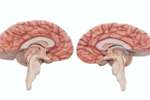Without even realizing it, you may have experienced trauma in your elbow. Because you were unaware of the initial injury, you continually use your arm in a way that causes tension in your elbow joint. Over time, you can experience nerve damage and several uncomfortable symptoms as a result. This damage can lead to ulnar neuropathy, a common condition that can be treated today.
What is Ulnar Neuropathy?
Ulnar neuropathy is also known as cubital tunnel syndrome. Whenever the elbow is bent, excess pressure is put on the ulnar nerve which reduces the blood flow. The ulnar nerve begins under your collarbone at the end of nerve bundle called the brachial plexus. The nerve extends through your upper arm, under your elbow, down your forearm and ends in your hand. When ulnar neuropathy is diagnosed, the nerve is damaged as a result of tumors, compressions, and non-specific inflammations. In most cases, compression in the elbow causes ulnar neuropathy because of repeated trauma and scarring.
Examples of trauma to the elbow include fracture, dislocation, a direct blow or severe twisting. Compressions can be amplified if you have a job that requires you to frequently flex your elbow joint. Other forms of compression occur in the wrist bones. Symptoms of ulnar neuropathy include pain in the elbow and forearm, a tingling in the forearm, tingling in the ring and pinky fingers, and weakness in the hand. Over time the compressions can cause significant nerve damage.
Living with Ulnar Neuropathy
If you have ulnar neuropathy, compressions will become worse when you bend the elbow. Holding the phone to your ear, resting your head in your hand, and curling your arm under you while you sleep can amplify the sensations associated with ulnar neuropathy. When you cross your arms over your chest, put your hand on the top of your steering wheel while you drive, and use your computer for a long period of time, symptoms may intensify. When you have a limited motor function in your hand as a result of neuropathy, you will have difficulty performing tasks such as opening a jar, typing, playing an instrument. If you have ulnar neuropathy, you will need to avoid putting pressure on your arm, keep the elbow straight as much as possible, and avoid activities that increase compressions in your elbow and wrist.
How is Ulnar Neuropathy Treated?
A clinical examination and electrodiagnostic tests called PNCV/EMG will diagnose ulnar neuropathy. In most cases, our doctors at NewSouth Neurospine will take a conservative approach to treat this condition. You may be required to take a B complex multivitamin or ibuprofen. Padding around the elbow will help lessen the potential of additional trauma as well as adjustments in activities that can increase symptoms. If healing does not take place, our physicians can perform a minor procedure that releases the nerve from the scarring and moves it away from the “funny bone” in order to prevent further injury.
Ulnar neuropathy is completely treatable, so if you are experiencing any symptoms associated with nerve trauma, make an appointment at NewSouth Neurospine today. All of our skilled physicians are able to diagnose ulnar neuropathy with our state of the art electrodiagnostic equipment. In the event that you need surgery, we have several surgeons on staff who regularly perform this procedure.






